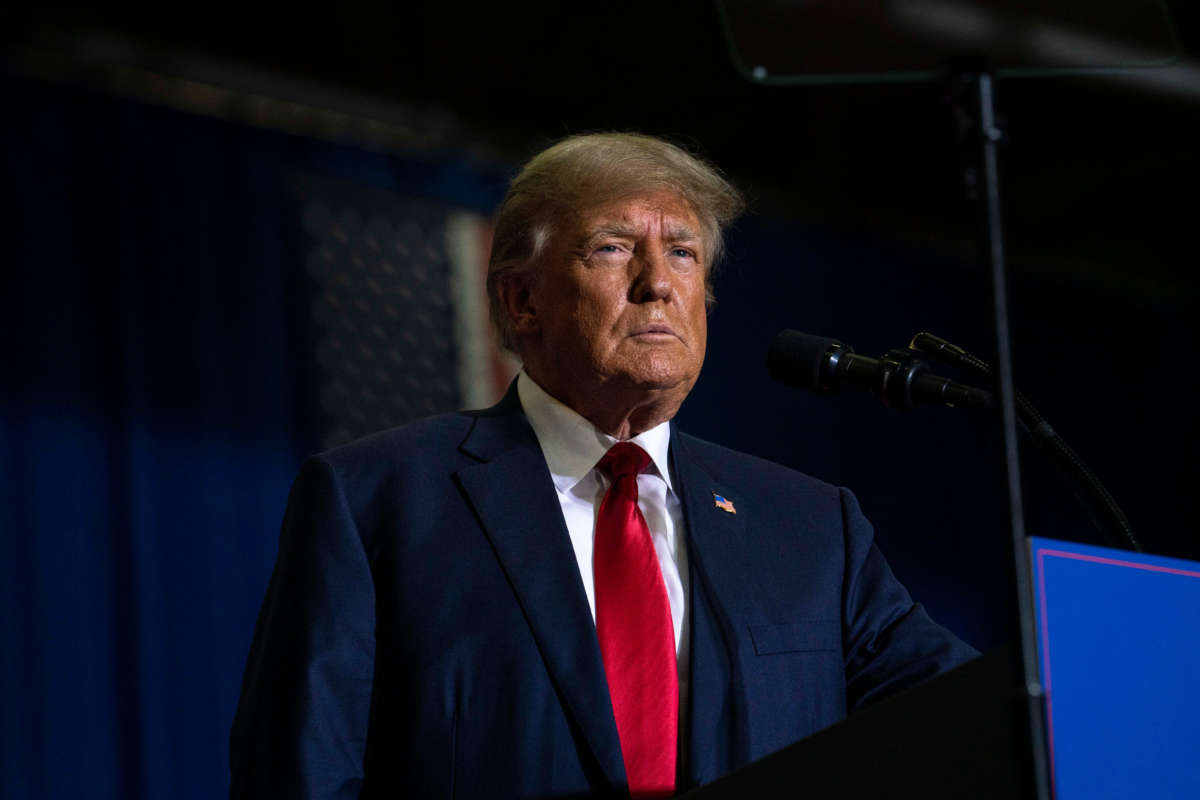Honest, paywall-free news is rare. Please support our boldly independent journalism with a donation of any size.
The U.S. Court of Appeals for the 11th Circuit has agreed to the Department of Justice’s (DOJ) request to expedite its challenge to the legality of having a special master review documents that were retrieved in August from former President Donald Trump’s Mar-a-Lago residence in Palm Beach, Florida.
The announcement from the 11th Circuit Court came on Wednesday. If the court eventually sides with the DOJ and determines that a special master was improperly granted or is unnecessary, it could result in a quicker DOJ decision on whether or not to charge Trump with crimes relating to his improper transfer of government materials (including hundreds of classified documents) to his residence upon exiting the White House.
Trump’s lawyers had argued against the DOJ’s claims that a special master was unnecessary in a brief they submitted earlier this week. Had the court sided with Trump, the process to determine the need for a special master would likely have lasted well into next year.
The process of determining the legality of involving a special master begins next week, according to a timetable from the 11th Circuit Court. The DOJ must submit a brief arguing why it believes a special master isn’t needed by October 14, while Trump’s lawyers must submit a brief by November 10. If the DOJ chooses to respond to that brief, it must submit its response within a week.
A panel of judges randomly selected within the 11th Circuit Court will decide when oral arguments will commence at a later time. The timetable laid out by the court suggests that it is possible arguments will be heard before the end of the year.
District Judge Aileen Cannon, a Trump appointee, initially agreed to appoint a special master in early September upon Trump’s request more than two weeks after the documents were retrieved from his home. Many legal experts believe the appointment was unnecessary, as the DOJ already had a separate team of researchers determining whether or not the documents were privileged. Some have speculated that Trump’s request for a special master was merely a delay tactic in order to better prepare his legal team’s arguments in the face of what appears to be impending charges against him.
Cannon’s order to appoint a special master prevented the DOJ from examining all of the documents they had retrieved from Trump’s estate. In a recent order from the 11th Circuit Court, the department was granted the ability to look at items marked as classified. Trump is appealing that ruling to the U.S. Supreme Court, but he is widely expected to lose that appeal.
Though the DOJ is now allowed to look at the classified documents, the department stated in its brief why it believes examining all of the material is important. It “may shed light on, for example, how the materials bearing classified markings were transferred to plaintiff’s residence,” the DOJ said.
Speaking against the authoritarian crackdown
In the midst of a nationwide attack on civil liberties, Truthout urgently needs your help.
Journalism is a critical tool in the fight against Trump and his extremist agenda. The right wing knows this — that’s why they’ve taken over many legacy media publications.
But we won’t let truth be replaced by propaganda. As the Trump administration works to silence dissent, please support nonprofit independent journalism. Truthout is almost entirely funded by individual giving, so a one-time or monthly donation goes a long way. Click below to sustain our work.
